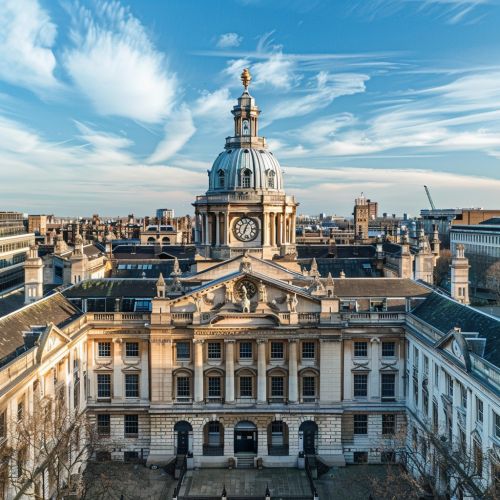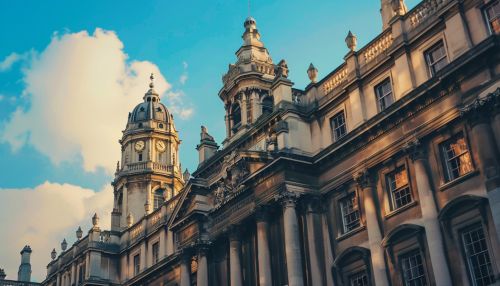University of London
History
The University of London is a federal public research university located in London, England. Established by a Royal Charter in 1836, it is the third oldest university in England. The university was initially established to address the lack of access to higher education in London, and to provide a secular alternative to the Anglican universities of Oxford and Cambridge.


The university originally consisted of two founding colleges: King's College London and University College London. These colleges were joined by other institutions over the years, forming a federation of 18 self-governing colleges and 10 smaller specialist research institutes.
Governance and Structure
The University of London operates on a federal model, similar to the University of Cambridge and the University of Oxford. This means that each of its member institutions has a high degree of autonomy, while also being part of the larger university federation. Each college has its own governing body, while the university has a Collegiate Council and a Board of Trustees.
The Chancellor is the ceremonial head of the university, while the Vice-Chancellor, currently Professor Wendy Thomson, is the chief executive. The Collegiate Council, comprising the heads of the member institutions, is responsible for academic policy and strategy.
Academic Profile
The University of London offers a wide range of courses across the humanities, social sciences, business, law, and natural sciences. It is particularly renowned for its courses in law, economics, and the humanities. Many of its member institutions are also highly regarded in their own right, such as the London School of Economics and King's College London.
The university is also home to a number of research institutes, including the Warburg Institute, the Institute of Historical Research, and the Institute of Advanced Legal Studies. These institutes conduct cutting-edge research in their respective fields and contribute to the university's strong research profile.
Student Life
The University of London has a diverse and vibrant student community, with students from over 150 countries. The university's central location in London means that students have access to a wealth of cultural and social activities.
The University of London Union (ULU) is the central students' union for the university. It provides a range of services and activities for students, including sports clubs, societies, and a student newspaper. The ULU also represents students' interests at a university and national level.
Notable Alumni
The University of London has a long list of distinguished alumni, including many notable figures in politics, academia, and the arts. These include four British Prime Ministers, numerous foreign heads of state, and several Nobel laureates.
Some of the university's most well-known alumni include economist John Maynard Keynes, philosopher Bertrand Russell, and author Virginia Woolf.
